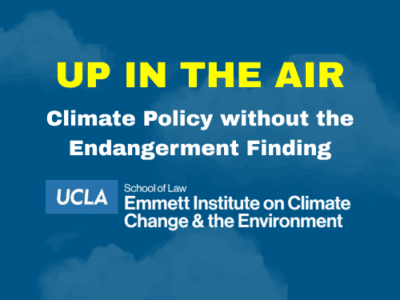What the Convention Speeches Could Teach Economists About the Discount Rate

It’s a bit of a leap from political conventions with their balloon drops and sign waving to the arcane issue of discount rates. But the conventions can be very informative because they’re engineered by experts to appeal to the public. That makes them a good indicator of public attitudes and values. Like Mayor Castro, many of the speakers at both conventions spoke movingly about the sacrifices made by their parent and grandparents so they could have better lives. That willingness to sacrifice for later generations is really important when we think about long-term issues like climate change. Yet the economic formulas leave it out of account.
First of all: what is the discount rate and why does it matter? The discount rate is a number that economists use to determine how much weight to give the future in cost-benefit analysis. The higher the discount rate, the smaller the significance of future costs and benefits compared to present ones. For an issue like climate change that involves impacts over many decades and even centuries, small changes in the discount rate have huge consequences for policy. (For more details, see this paper.)
The formula used to calculate the discount rate (based on what are called Ramsey growth models) assumes that people want to even out differences in income between individuals and across time. Ideally, people would want future generations to be just as well off as they are today, no better and no worse.
That brings us to the Republican and Democratic conventions. The two conventions were different in many ways, but they shared one important theme: personal stories about how parents and grandparents had struggled and made sacrifices so that the person who was speaking could have a better life than they had. That contradicts the Ramsey formula. The formula assumes that the parents and grandparents should be looking to equalize wealth between generations, not sacrificing to make others better off than they are.
Of course, those stories, however moving they may have been, are only about individual cases. But in fact, the evidence does show a willingness to make sacrifices for later generations. A survey by MetLife (here) confirmed this:
Over the past five years, the majority of grandparents polled said they had provided financial support or monetary gifts for their grandchildren. The average amount of this support was $8,289.
Forty-three percent of grandparents gave money for clothing, 33 percent for general support and 29 percent for education, such as preschool, private schools, tutoring, college tuition and graduate school…
Grandparents often give too much. One-third are giving financial support to grandchildren even though they believe it is having a negative effect on their own financial security, according to the grandparents’ survey.
Even if we assume that this willingness to sacrifice does not extent past grandchildren to later generations, it still makes a difference when we think about climate change. A two-generation time horizon is longer than you might think: parents who have a child today can expect the child to live almost until the end of this century and that child’s children will probably live until about 2125. That’s given current life expectancies and assuming away medical progress.
If it’s true that people are willing to sacrifice significantly to improve the lots of their children and grandchildren, the next century of climate change impacts should loom much larger for us than the current model of discounting implies.
Putting aside all the wonky details, here’s the bottom line. The economic formulas assume that people want their children and grandchildren to be as well off as they are, no better and no worse. But people actually want the future to be better than the present, and they’re willing to make sacrifices for this to happen. The economists need to wake up to that fact.







2 Replies to “What the Convention Speeches Could Teach Economists About the Discount Rate”
Comments are closed.